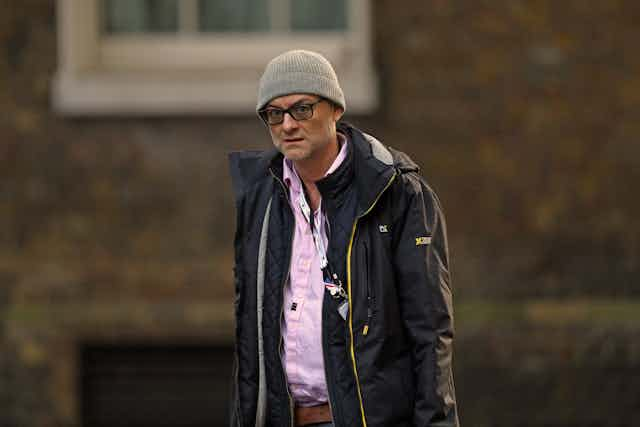Dominic Cummings caused a stir with his recent blog post about shaking up Britain’s civil service. The prime minister’s special adviser argued that there is a lack of “cognitive diversity” in Downing Street and emphasised a need to hire “weirdos and misfits”.
In some respects, Cummings is right. Many of Britain’s elite employers don’t perform well when it comes to cognitive diversity (thinking differently). I’ve seen this first hand in my research on the so-called big four professional service firms, which shows that their employees offer little variety in terms of ideas, personalities and character traits.
My research suggests that this lack of cognitive diversity at least partly stems from graduate recruitment. Big four firms like to hire a specific type of graduate. They need to be committed, hard working and commercially minded. They need to be confident communicators, who have leadership and team-working skills. They also need to fit in with the culture of these organisations.

Big four recruitment practices compel ambitious students to undergo an elaborate socialisation process to transform them into this type of person. As part of this process, these students spend enormous amounts of their free time studying the largely similar recruitment literature of their prospective employers, attending largely similar campus recruitment events, joining largely similar societies and carefully studying and imitating the largely similar behaviour of big four professionals.
Corporate clones
Aspiring big four professionals begin to transform into corporate clones who speak, dress, behave and think like employees of these firms sometimes even before being hired. In the words of one of my interviewees, her fellow aspiring big four professionals “were all the same, they all have the same mindset”. Of course, the big four attract many intelligent, highly committed and hard-working graduates. But they tend to be largely like-minded and uncritical of the way things are done.
The graduate intakes of these firms have become more diverse in terms of gender and ethnicity. This is an important and positive development. But recent research has shown that gender and ethnic diversity don’t necessarily result in cognitive diversity. That is, they don’t guarantee that a wide range of ideas, attitudes and perspectives are represented in a group. My study indicates that although the big four now hire more female and minority ethnic students, their graduate intakes feature relatively little cognitive diversity.

Graduate intakes dominated by highly committed but uncritical corporate clones may be ideally suited to successfully navigate the professional exams, long hours and often monotonous work characteristic of big four traineeships. But a lack of cognitive diversity among graduates may come at a cost. For example, it may lead to groupthink and limit the range of new ideas and innovations generated by these organisations. It may also blind them to certain opportunities as well as threats.
From a broader societal standpoint, these seemingly like-minded and uncritical graduate intakes could also be problematic. Corporate clones may not be ideally equipped to implement the growing calls among regulators and government for greater professional scepticism and suspicion among big four auditors. Such calls have grown increasingly loud in response to the role these firms played in high profile corporate collapses like BHS, Carillion and Thomas Cook.
So, for their own good, and for the good of society more generally, elite employers, such as the big four, may want to reconsider their graduate recruitment practices so that they can attract people who are not only diverse in terms of gender and ethnicity, but also in terms of ideas, attitudes and personalities.

